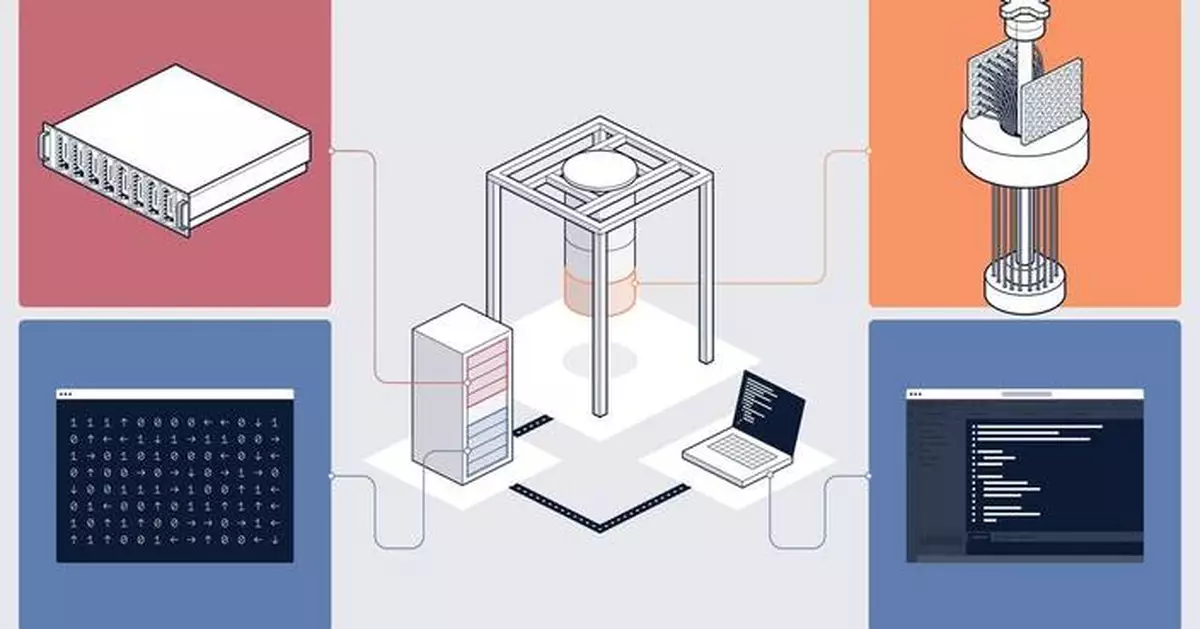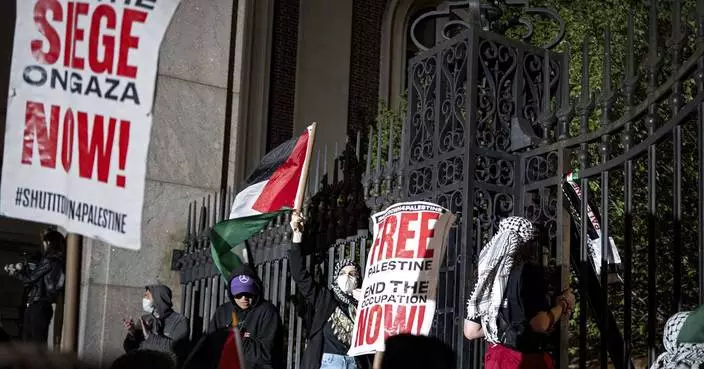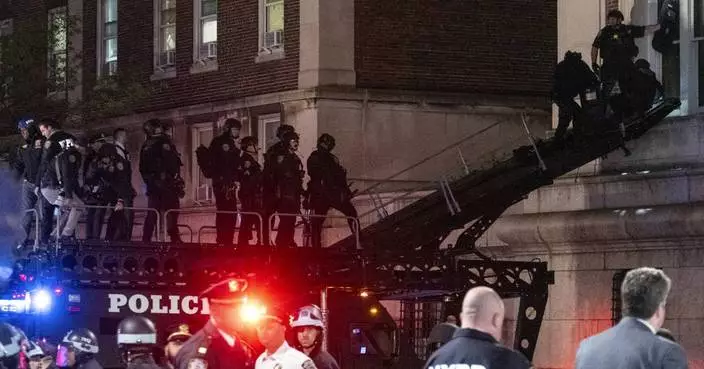SINGAPORE--(BUSINESS WIRE)--Apr 18, 2024--
Horizon Quantum Computing, a company building software development tools for quantum computers, today announced that it is establishing a first-of-a-kind testbed for integrating quantum computing hardware with its software stack, Triple Alpha. The testbed, which will be set up at Horizon’s Singapore headquarters, will have the capacity to host multiple quantum computers. By acquiring its own hardware, Horizon gains full control over both hardware and software stacks, allowing it to push the frontiers of quantum computing.
This press release features multimedia. View the full release here: https://www.businesswire.com/news/home/20240418068549/en/
A key aspect of Horizon’s quantum computing testbed is its modular multi-vendor approach. Rather than utilising a single-vendor solution, the company has purposely selected best-in-class components from different providers. This modularity allows Horizon to integrate its software stack with different hardware configurations and upgrade the system over time.
The first system will be based on a Novera™ quantum processor from Rigetti Computing and OPX1000, the processor-based quantum controller from Quantum Machines. The integrated system is expected to be installed by early 2025.
“Recent progress on quantum processors and error correction has underscored the rapid pace of progress in the field. We are taking the step of creating this testbed because we believe that tight integration between hardware and software is the shortest path to truly useful quantum computing,” said Dr Joe Fitzsimons, Founder & CEO at Horizon Quantum Computing. “We are delighted to work with Rigetti Computing and Quantum Machines on our first system.”
“We are thrilled that Horizon has selected the Novera QPU for their first quantum computing system. Establishing high performing on-premise quantum computing capabilities is key for working towards useful quantum computing,” said Dr Subodh Kulkarni, CEO at Rigetti Computing. “We can’t wait to witness what the Horizon team accomplishes with a quantum computing system powered by the Novera QPU and Quantum Machines’ control system.”
“We’re excited to partner with Horizon Quantum Computing and Rigetti Computing in this pioneering initiative. Our approach has always emphasized scalability, interoperability and modularity, principles that resonate with Horizon’s Triple Alpha,” said Dr Itamar Sivan, co-founder and CEO of Quantum Machines. “This collaboration with industry pioneers like Horizon and Rigetti not only showcases the adaptability and effectiveness of our processor-based OPX1000 controller in diverse setups, but also marks a significant step forward in the collective journey towards useful quantum computers.”
About Horizon Quantum Computing
Horizon Quantum Computing is developing a new generation of programming tools to simplify and expedite the process of developing software for quantum computers. By removing the need for prior quantum computing experience to develop applications for quantum hardware, Horizon’s tools are making the power of quantum computing accessible to every software developer.
The company was founded by Dr Joe Fitzsimons in 2018, a former professor with two decades of experience in quantum computing and computational complexity theory. The leadership team also includes Dr Si-Hui Tan, Chief Science Officer, who holds a Ph.D. in Physics from MIT and has been actively involved in quantum research for the same period.


Illustration of Triple Alpha web-based IDE and compiler suite from Horizon Quantum Computing, along with backend server, integrated with a Novera™ quantum processor from Rigetti Computing and OPX1000, the processor-based quantum controller from Quantum Machines (Graphic: Business Wire)
CHARLOTTE, N.C. (AP) — United Methodist delegates repealed their church’s longstanding ban on LGBTQ clergy with no debate on Wednesday, removing a rule forbidding “self-avowed practicing homosexuals” from being ordained or appointed as ministers.
Delegates voted 692-51 at their General Conference — the first such legislative gathering in five years. That overwhelming margin contrasts sharply with the decades of controversy around the issue. Past General Conferences of the United Methodist Church had steadily reinforced the ban and related penalties amid debate and protests, but many of the conservatives who had previously upheld the ban have left the denomination in recent years, and this General Conference has moved in a solidly progressive direction.
Applause broke out in parts of the convention hall Wednesday after the vote. A group of observers from LGBTQ advocacy groups embraced, some in tears. “Thanks be to God,” said one.
The change doesn’t mandate or even explicitly affirm LGBTQ clergy, but it means the church no longer forbids them. It’s possible that the change will mainly apply to U.S. churches, since United Methodist bodies in other countries, such as in Africa, have the right to impose the rules for their own regions. The measure takes effect immediately upon the conclusion of General Conference, scheduled for Friday.
The consensus was so overwhelmingly that it was rolled into a “consent calendar,” a package of normally non-controversial measures that are bundled into a single vote to save time.
Also approved was a measure that forbids district superintendents — a regional administrator — from penalizing clergy for either performing a same-sex wedding or for refraining from performing one. It also forbids superintendents from forbidding or requiring a church from hosting a same-sex wedding.
That measure further removes scaffolding around the various LGBTQ bans that have been embedded various parts of official church law and policy. On Tuesday, delegates had begun taking steps to dismantle such policies.
Delegates are also expected to vote as soon as today on whether to replace their existing official Social Principles with a new document that no longer calls the “practice of homosexuality … incompatible with Christian teaching” and that now defines marriage as between “two people of faith” rather than between a man and a woman.
The changes are historic in a denomination that has debated LGBTQ issues for more than half a century at its General Conferences, which typically meet every four years. On Tuesday, delegates voted to remove mandatory penalties for conducting same-sex marriages and to remove their denomination’s bans on considering LGBTQ candidates for ministry and on funding for gay-friendly ministries.
About 100 LGBTQ people and allies gathered outside the Charlotte Convention Center after the vote — many with rainbow-colored scarves and umbrellas — to celebrate, pray and sing praise songs accompanied by a drum.
Bishop Karen Oliveto, the first openly lesbian bishop in the United Methodist Church, was among those celebrating.
“It seemed like such a simple vote, but it carried so much weight and power, as 50 years of restricting the Holy Spirit’s call on people’s lives has been lifted,” said Oliveto, of the Mountain Sky Episcopal Area, which includes Colorado, Montana, Utah and Wyoming. “People can live fully into their call without fear. The church we’ve loved has found a home for us.”
Angie Cox, an observer at the meeting from Ohio, said she has gone before her conference’s board of ordained ministry six times but was “told no just because of the prohibition on LGBTQ clergy.” She said Wednesday’s vote “means I might be able finally to live fully into my calling.”
Tracy Merrick, a delegate from Pittsburgh who has advocated for LGBTQ inclusion at several previous conferences, said with emotion that there were “many times when I thought we would never see this day.”
The vote, he said, enables the church to become “the denomination that many of us had envisioned for years.”
At the same time, the vote comes following the departure of one-quarter of the U.S. churches within the UMC. And it could also prompt departures of some international churches, particularly in Africa, where more conservative sexual values prevail and where same-sex activity is criminalized in some countries.
Last week, the conference endorsed a regionalization plan that essentially would allow the churches of the United States the same autonomy as other regions of the global church. That change — which still requires local ratification — could create a scenario where LGBTQ clergy and same-sex marriage are allowed in the United States but not in other regions.
More than 7,600 mostly conservative congregations in the United States disaffiliated between 2019 and 2023 reflecting dismay over the denomination not enforcing its bans on same-sex marriage and LGBTQ ordination.
The conference last week also approved the departure of a small group of conservative churches in the former Soviet Union.
The church's 1972 General Conference approved a statement in its non-binding Social Principles that homosexuality is “incompatible with Christian teaching" — a phrase omitted in a revision to the Social Principles that is also headed for a conference vote this week.
The now-repealed ban on clergy who are "self-avowed practicing homosexuals" was originally enacted in 1984, when the conference also voted to require “fidelity in marriage and celibacy in singleness.”
The denomination had until recently been the third largest in the United States, present in almost every county. But its 5.4 million U.S. membership in 2022 is expected to drop once the 2023 departures are factored in.
The denomination also counts 4.6 million members in other countries, mainly in Africa, though earlier estimates have been higher.
Associated Press religion coverage receives support through the AP’s collaboration with The Conversation US, with funding from Lilly Endowment Inc. The AP is solely responsible for this content.
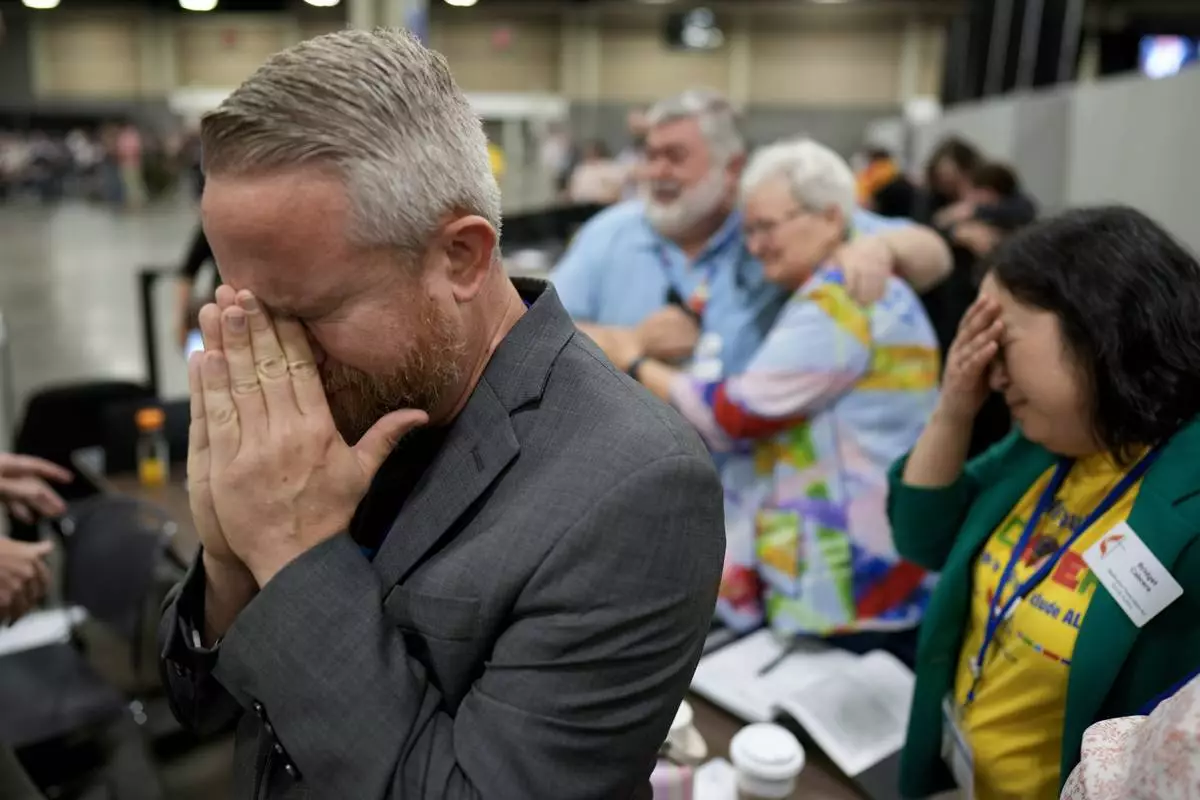
CORRECTS ID: Rev. Andy Oliver, Pastor of Allendale UMC in St. Petersburg, Florida, reacts after an approval vote at the United Methodist Church General Conference Wednesday, May 1, 2024, in Charlotte, N.C. United Methodist delegates repealed their church’s longstanding ban on LGBTQ clergy with no debate on Wednesday, removing a rule forbidding “self-avowed practicing homosexuals” from being ordained or appointed as ministers. (AP Photo/Chris Carlson)

CORRECTS ID: Rev. Andy Oliver, Pastor of Allendale UMC in St. Petersburg, Florida, left, and David Meredith wipe away tears after an approval vote at the United Methodist Church General Conference Wednesday, May 1, 2024, in Charlotte, N.C. United Methodist delegates repealed their church’s longstanding ban on LGBTQ clergy with no debate on Wednesday, removing a rule forbidding “self-avowed practicing homosexuals” from being ordained or appointed as ministers. (AP Photo/Chris Carlson)

A convention goer wears a button supporting LGBTQ clergy at the United Methodist Church General Conference Wednesday, May 1, 2024, in Charlotte, N.C. United Methodist delegates repealed their church’s longstanding ban on LGBTQ clergy with no debate on Wednesday, removing a rule forbidding “self-avowed practicing homosexuals” from being ordained or appointed as ministers. (AP Photo/Chris Carlson)

David Meredith, left, and Jan Lawrence react after an approval vote at the United Methodist Church General Conference Wednesday, May 1, 2024, in Charlotte, N.C. United Methodist delegates repealed their church’s longstanding ban on LGBTQ clergy with no debate on Wednesday, removing a rule forbidding “self-avowed practicing homosexuals” from being ordained or appointed as ministers. (AP Photo/Chris Carlson)
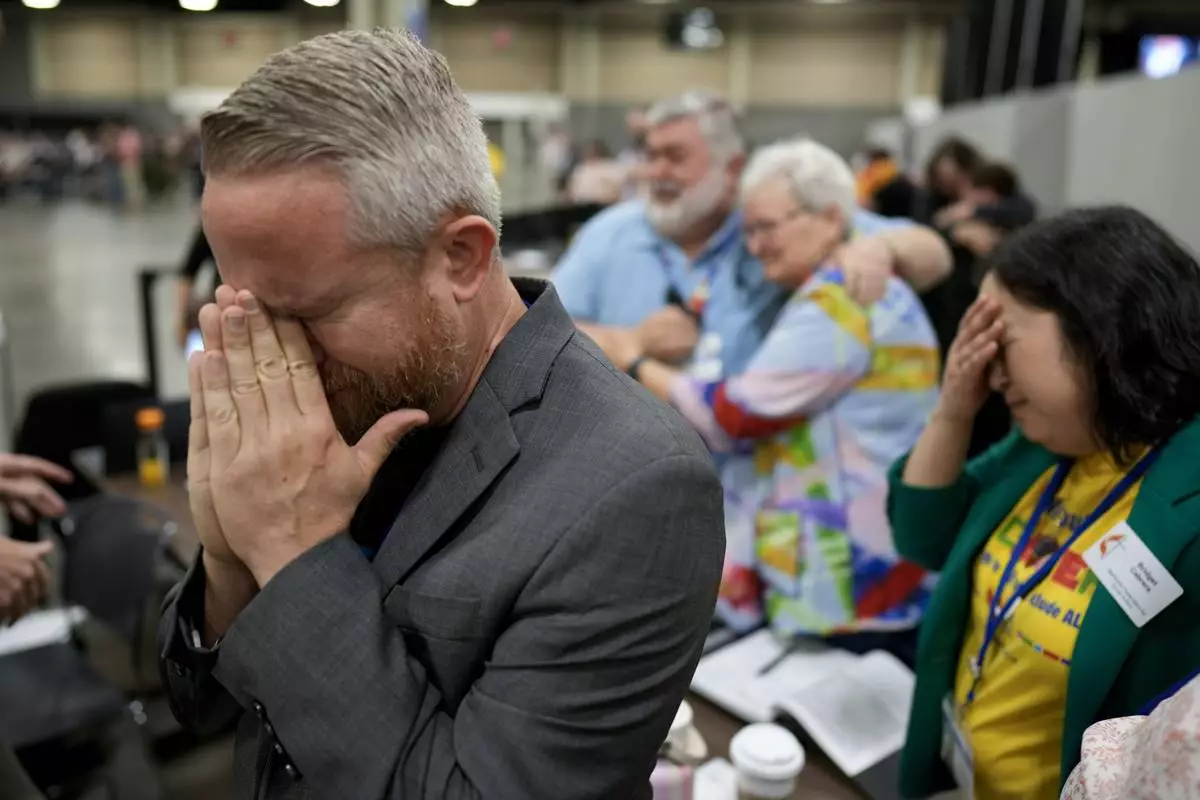
David Oliver reacts after an approval vote at the United Methodist Church General Conference Wednesday, May 1, 2024, in Charlotte, N.C. United Methodist delegates repealed their church’s longstanding ban on LGBTQ clergy with no debate on Wednesday, removing a rule forbidding “self-avowed practicing homosexuals” from being ordained or appointed as ministers. (AP Photo/Chris Carlson)

David Meredith, middle, hugs fellow observers after an approval vote at the United Methodist Church General Conference Wednesday, May 1, 2024, in Charlotte, N.C. United Methodist delegates repealed their church’s longstanding ban on LGBTQ clergy with no debate on Wednesday, removing a rule forbidding “self-avowed practicing homosexuals” from being ordained or appointed as ministers. (AP Photo/Chris Carlson)

Angie Cox, left, and Joelle Henneman hug after an approval vote at the United Methodist Church General Conference Wednesday, May 1, 2024, in Charlotte, N.C. United Methodist delegates repealed their church’s longstanding ban on LGBTQ clergy with no debate on Wednesday, removing a rule forbidding “self-avowed practicing homosexuals” from being ordained or appointed as ministers.(AP Photo/Chris Carlson)

David Oliver, left, and David Meredith wipe away tears after an approval vote at the United Methodist Church General Conference Wednesday, May 1, 2024, in Charlotte, N.C. United Methodist delegates repealed their church’s longstanding ban on LGBTQ clergy with no debate on Wednesday, removing a rule forbidding “self-avowed practicing homosexuals” from being ordained or appointed as ministers. (AP Photo/Chris Carlson)

Michigan Bishop David Bard presides at a session of the General Conference of the United Methodist Church on Tuesday, April 30, 2024, in Charlotte, N.C. (AP Photo/Peter Smith)

United Methodist delegates listen to a debate during their General Conference meeting Tuesday, April 30, 2024, in Charlotte, N.C. (AP Photo/Peter Smith)




